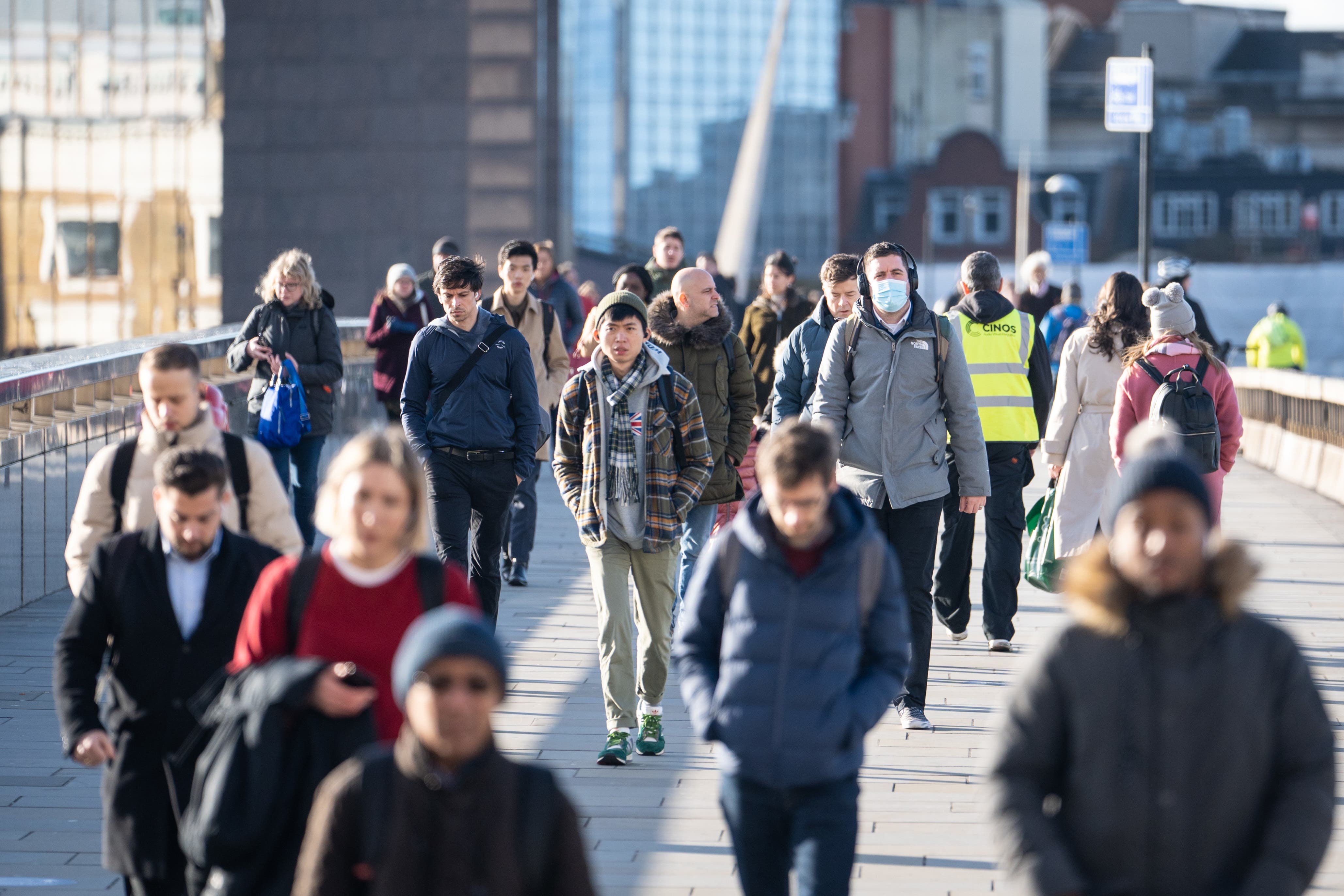Economy ‘loses momentum again’ as private sector growth slows despite retail boost
The S&P Global/CIPS flash UK purchasing managers’ index fell to 52.8 in June from 54 in May

Britain’s economy “has lost momentum again” as growth in the private sector dropped to its slowest for three months, despite an unexpected boost in retail sales.
The S&P Global/CIPS flash UK purchasing managers’ index declined to 52.8 in June from 54 in May – a sharper slowdown than expected. Any reading above 50 is considered to show the sector is growing.
Chris Williamson, chief business economist at S&P Global Market Intelligence, said: “June’s flash PMI survey indicates that the UK economy has lost momentum again after a brief growth spurt in the spring and looks set to weaken further in the months ahead.
“Most notably, consumer spending on services, which was a core growth driver in the spring, is now showing signs of faltering as the reality of higher interest rates, the increased cost of living and gloom about the outlook sets in and overrides the brief boost to spending enjoyed from the pandemic tailwind.”
The latest report showed further growth in the services industry, but the reading of 53.7 was its slowest rate of expansion since March as higher interest rates impact Britons’ spending power.
However, the report also revealed the rate of staff hiring across UK industry was the fastest seen since September last year as the job market remained resilient.
John Glen, chief economist at the Chartered Institute of Procurement & Supply (CIPS), said: “Recent interest rate rises will also add more stress on business investment.
“In the manufacturing sector, new orders fell again for another month, marking a year of shrinking workflows.”
There was better economic news as Britain’s retail sales did unexpectedly well last month thanks to a spike in temperatures.
Data from the Office for National Statistics (ONS) showed that retail sales volumes rose 0.3 per cent in May, better than the 0.2 per cent drop that economists had forecast.
The bounce was largely due to a rise in petrol and diesel sales, which the ONS said could be down to falling fuel prices, which reached their lowest point since early 2022 last month.
The figures measure the amount bought – volume – rather than the amount spent – value. Fuel stores sold 1.7 per cent more still in May following a 1.7 per cent drop in April. That was still 9.5 per cent below pre-Covid levels.
Meanwhile, warmer weather also helped retailers who sell summer clothing and outdoor goods, with online retailers especially reporting a boost.
Non-store retailing sales volumes, which includes the above, rose by 2.7 per cent in May, the ONS revealed on Friday.
But May’s overall 0.3 per cent rise was still a slowdown from the 0.5 per cent increase in retail sales volume seen in April.
The poor performers included food shops. Continuing a trend where people buy less, but pay more for it, sales dropped again, this time by 0.5 per cent, the ONS said.
The ONS said there was some evidence that this might be partly because people ordered takeaways rather than cooking at home on the coronation bank holiday.
The amount of food sold in shops has been dropping consistently since around July 2021. For the first year, this was largely an effect of the pandemic restrictions on eating out coming to an end, but from May last year the amount of food people bought dropped below pre-pandemic times and has consistently kept going down as prices soared.
In May, shoppers bought around 3.3 per cent less food than they did in 2019, but paid almost 20 per cent more for it.
ONS senior statistician Heather Bovill said: “Retail sales grew a little in May, with online shops doing particularly well selling outdoor goods and summer clothes, as the sun began to shine.
“May also saw a return to growth for fuel sales after a dip in April.
“Garden centres and DIY stores also saw growth, as the good weather encouraged people to start home and garden improvements.
“These were offset by food sales, which fell back as prices in supermarkets continued to rise, exacerbated by many people ordering takeaways and drinking out more during the extra bank holidays, while jewellery and art also fell back after a strong April.”
Overall, retail remains dampened by the impact of inflation.
“While retail sales increased by 7.7 per cent compared with last year in pound note terms, we now know from the inflation numbers announced earlier this week that shoppers are continuing to get less for the money they are spending,” said Jacqueline Windsor, head of retail at PwC.